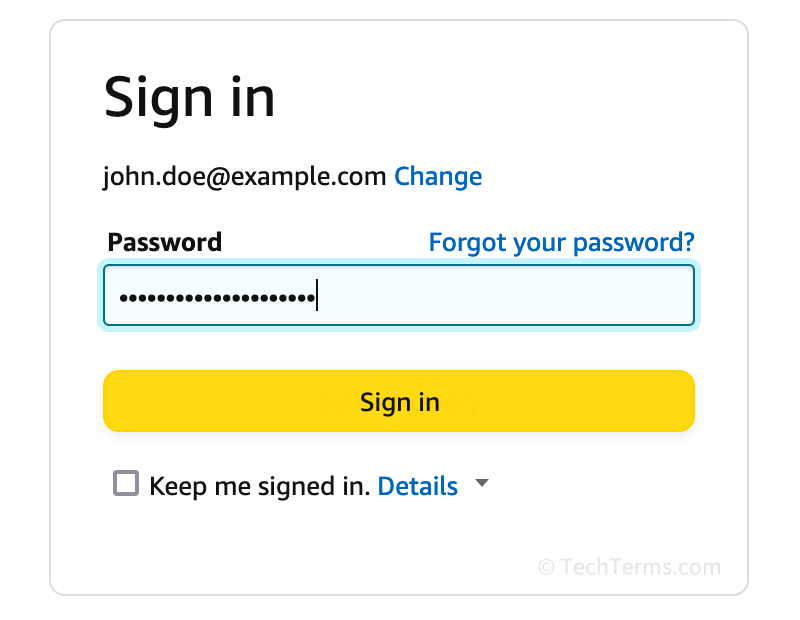Password
A password is a string of characters that forms part of user authentication on a computer system, along with a username. The combination of a username and password is known as a login. The username is the publicly-known half of a login that identifies the account holder, and the password is the private half that should be kept secret.
A password consists of a string of plain text characters — letters, numbers, and punctuation symbols (sometimes including spaces). When choosing a password, it is important to make it complicated enough so that other people cannot guess it — no birthdays or names of loved ones (which can be learned through social engineering) or plain words (which can be cracked using a brute force dictionary attack). A good, secure password is at least 12 characters long and includes a mix of lower- and upper-case letters, numbers, and punctuation symbols.

You should also never use the same password for multiple websites and services. After successfully breaching one website, hackers will often test stolen username and password combinations on other websites to see what they can access. For example, if you use the same password for an online store and your Gmail account, and hackers attack the store to learn customer email addresses and passwords, those hackers can use those same credentials to access your email account.
Many people use password managers to keep a database of their passwords. By storing username and password combinations in a password manager, secured and encrypted behind a master password, you only need to commit the master password to memory. You can look up your passwords in the database to access them when logging into a website, or even use a web browser extension that automatically fills in your username and password on websites you have an account with. Password managers also include password generators that create secure passwords and automatically store them in the database.
 Test Your Knowledge
Test Your Knowledge